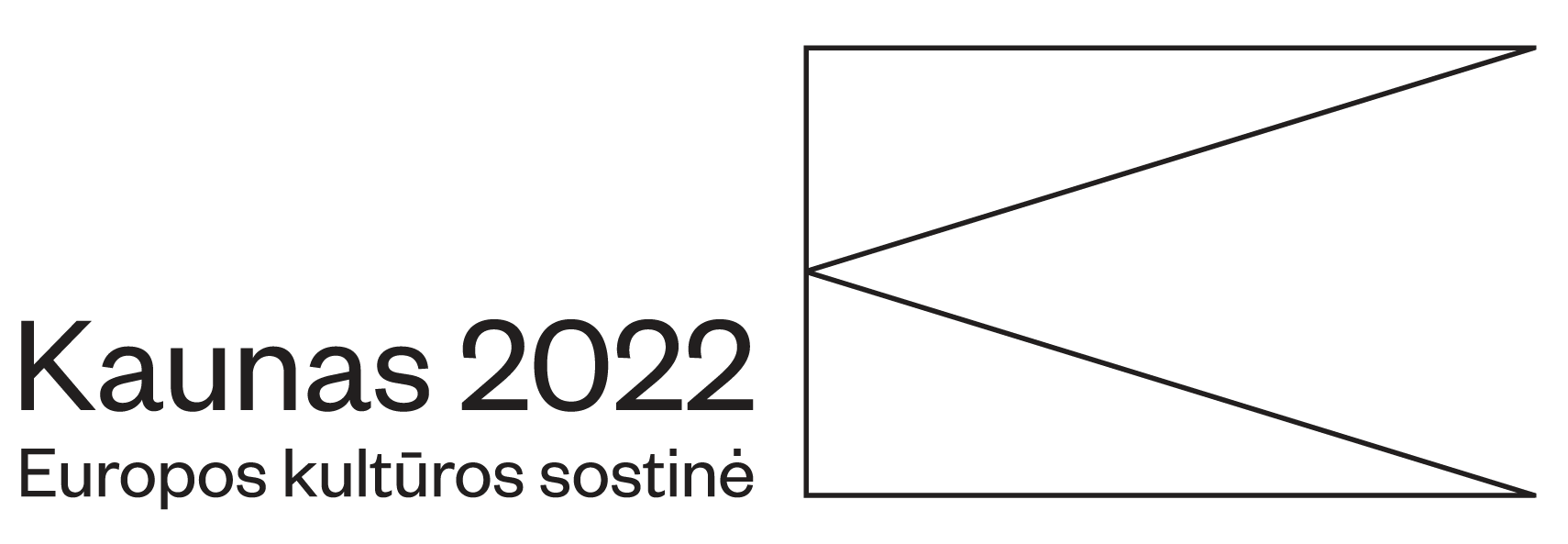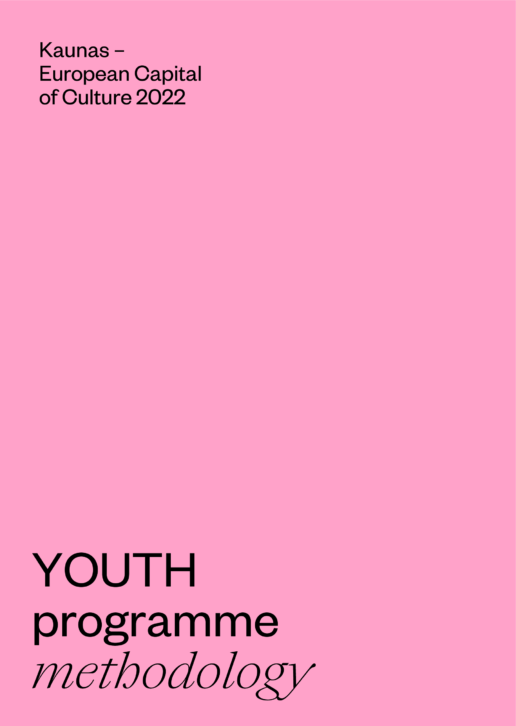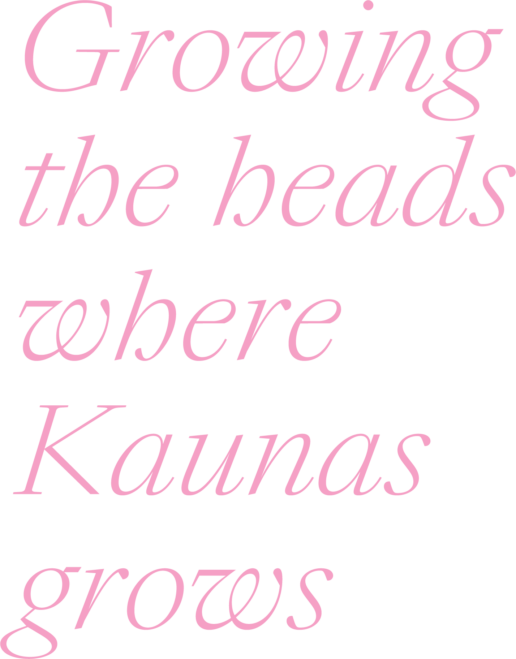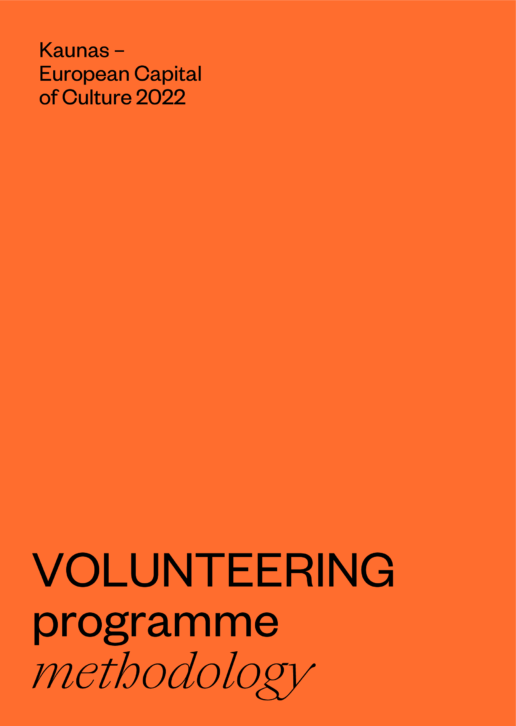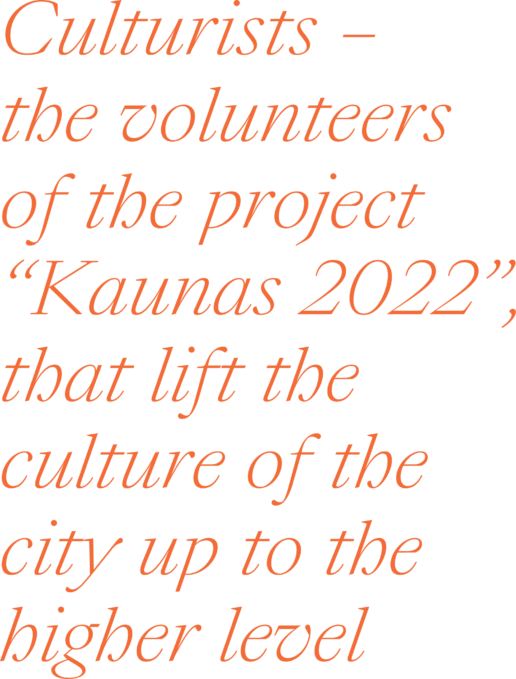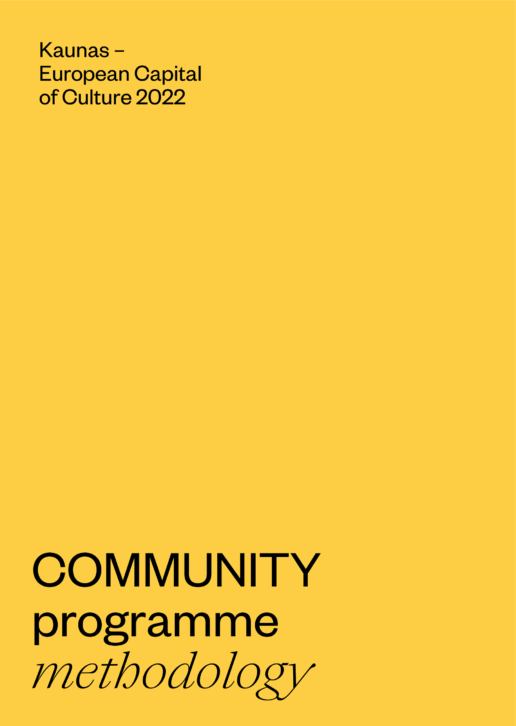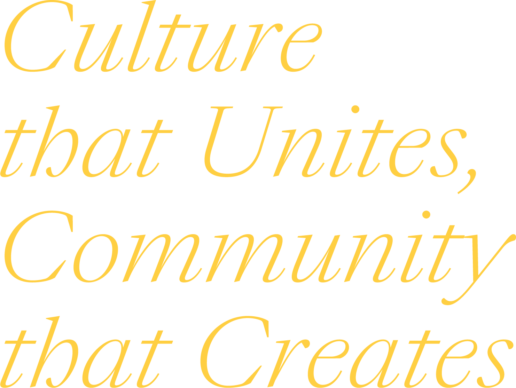Kaunas 2022 trilogy of methodology
The five years of co-working in the international project “Kaunas – European Capital of Culture 2022” brought unique experiences of continuous teaching and learning. For competence development, the “Tempo Academy of Culture” programme was established in the framework of the project and was aimed at both specialised training and practical workshops covering such topics as creative freedom, active community, open cultural networking, and sustainable solutions for the city. The tools mastered by the local residents enabled them to fulfil their dreams and create that type of Kaunas and Kaunas district that hundreds of people were dreaming about, bringing the feeling of pride about their local place.
We have in mind different communities, active youth, seniors, representatives of cultural institutions and various nations, professionals and enthusiasts of architecture, design, heritage. The lessons learned – both personal and collective – reflect the values that we feel obliged to share with the others: our personal values and the ones shared by the entire Europe.
The trilogy of our methodological publications reflects the experiences and achievements gained during the years of our activity. The three publications are dedicated to everyone seeking positive change and caring about their city, their community, and their neighbour.

ed. Vaiva Marija Bružaitė, Sandra Karnilavičiūtė, Aurelija Prašmuntaitė
This book is worth having at hand for everyone who cares about empowering the youth to realise their dreams, make influence on their environment, feel an integral part of the society, and take responsibility for what is happening around them.
Based on the example of the youth programme “Kaunas Challenge” created by “Kaunas – European Capital of Culture 2022“, this book serves as a methodology which turns the youngsters’ need of self-realisation into a brainstorm of ideas for the city, into a space for discussing, dreaming, and acting without constraints, into a platform of project development, and into numerous implemented projects. The book presents and offers a methodology for working with the youth, as well as formats and specific advice on group facilitation, activity structure, and communication. Everything described has already been tested in practice during the 6 years of existence of the still active “Kaunas Challenge” programme.
The inspiring experience of “Kaunas Challenge” and the detailed structure of the programme has formed the content of this book that makes this publication no less impactful than the “Kaunas Challenge” programme. Now, all you need to do is roll up your sleeves, and the youngsters of your city, town, neighbourhood, or community will start building their future themselves.
Jurga Knyvienė Chief Manager,
Kaunas City Chamber Theatre
Volunteers are key persons at mass events. The creative team and managers can perform their tasks at their best, yet they are usually rarely met by participants of events eye-to-eye. It is the volunteers whom we meet at events, and the entire mood of an event depends on the success of that meeting. A volunteer is an assistant and a guide, a real persons next to us, and this person may be just one of us. Being a volunteer is like being a true patriot: going out to do one’s work, at one’s free will, to make it easier for others. It is a noble work worth of people’s most sincere gratitude.
Rytis Zemkauskas
TV journalist, film producer, writer

ed. Greta Klimavičiūtė – Minkštimienė, Aistė Ptašinskaitė – Paukštė, Milda Rutkauskaitė
This book declares that culture can make a positive effect on the lives of individual people and even of the entire groups of society, and this is not just a meaningless statement. The book presents in detail how the “Kaunas — European Capital of Culture 2022” project has managed to mobilise the residents of different neighbourhoods of Kaunas and the adjacent towns for joint creative activities, aiming to enable them to feel the owners of their living area. What is even more important, it that this book can serve as a beginner‘s guide on the cultural work with communities, inspired by the rich experience of the project that lasted for several years. The authors of this book are willingly sharing their ideas and values which serve as a basis for community creativity, as well as their proven methods and instruments, lessons learned, and practical advice, also revealing the problems and challenges faced in this field of activity. The readers of this book might get inspired not just by its optimistic rhetoric, but also by the numerous examples of the implemented projects that seem to have actually provided an impetus for a number of local communities — from Eiguliai district in Kaunas to Kulautuva resort in Kaunas district.
Assoc. Prof. Dr. Linara Dovydaitytė
